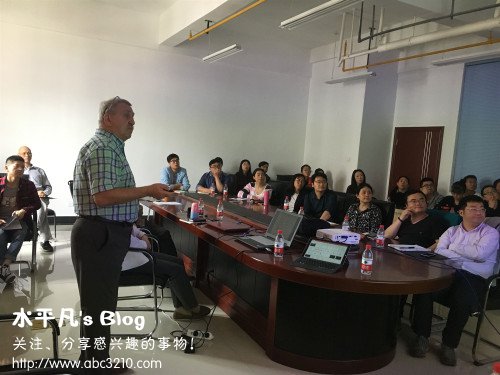On April 22nd
HBUT once again had the pleasure of welcoming Doctor Marek Michalak to
the university. This time the visit was arranged by Professor Tang
Jingfeng from the International Cellular Regulation and Molecular
Pharmaceutics Innovation Research Center (111 Center). The following day
Professor Tang and Doctor Michalak co-hosted an event attended by all
of the faculty members of the School of Bioengineering and Food. At the
meeting they discussed a report entitled “ER stress coping strategies in
muscle”.

In
his presentation, Dr. Marek Michalak introduced the results of ER
stress research at his laboratory over the last five years, focusing on
the function and regulation of ER1α, a key regulator of ER stress
signaling pathway, in skeletal muscle and myocardium. Dr. Marek
Michalak said that in cardiomyocytes, IRE1α responds to cellular stress
and its function is inhibited when it binds to Casq2. However, after
removing the IRE1α gene in mice, the loss of IRE1α function causes
severe damage to cardio functionality. The results showed that the
electrical activity of the heart is significantly weakened and
disordered after IRE1α is removed, which in turn can produce dilated
cardiomyopathy, heart failure, and myocardium. Pathological features
such as impaired intracellular calcium homeostasis, myocardial fibrosis,
and weakened cellular communication between cardiomyocytes and
fibroblasts.
Dr.
Marek Michalak roused the interest and enthusiasm of teachers and
students in the reporting process with his use of vivid language and his
rigorous experiment design. The professors and graduate students of the
Institute of Raw Food, Liu Binlei, Xie Weihong, Wang Jun, and the
academicians of Dr. Marek Michalak had a warm academic exchange. The
interactive atmosphere was lively and the teachers and students
responded well.
After
the meeting, Academician Dr. Marek Michalak visited the base laboratory
and expressed appreciation for the development of the center over the
past two years. He also expressed his desire to further strengthen the
joint training and research cooperation of graduate students to the PI
teams of the “111” base.